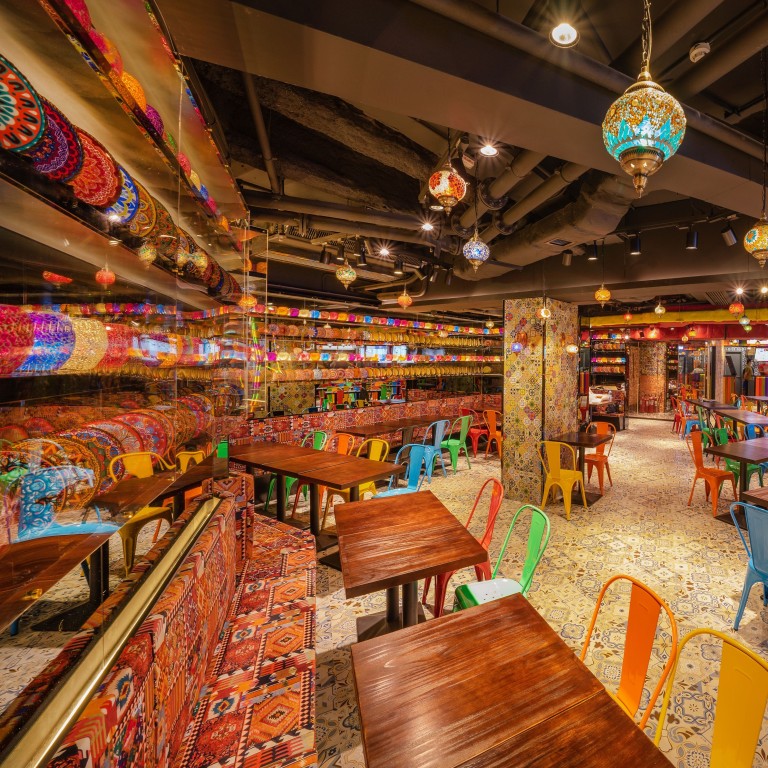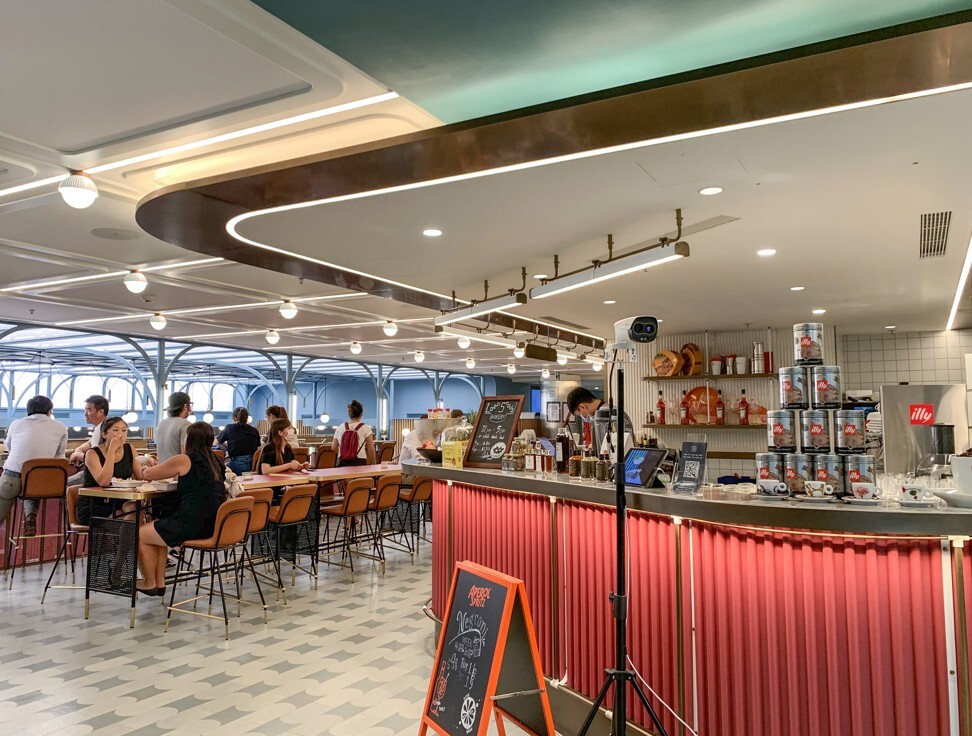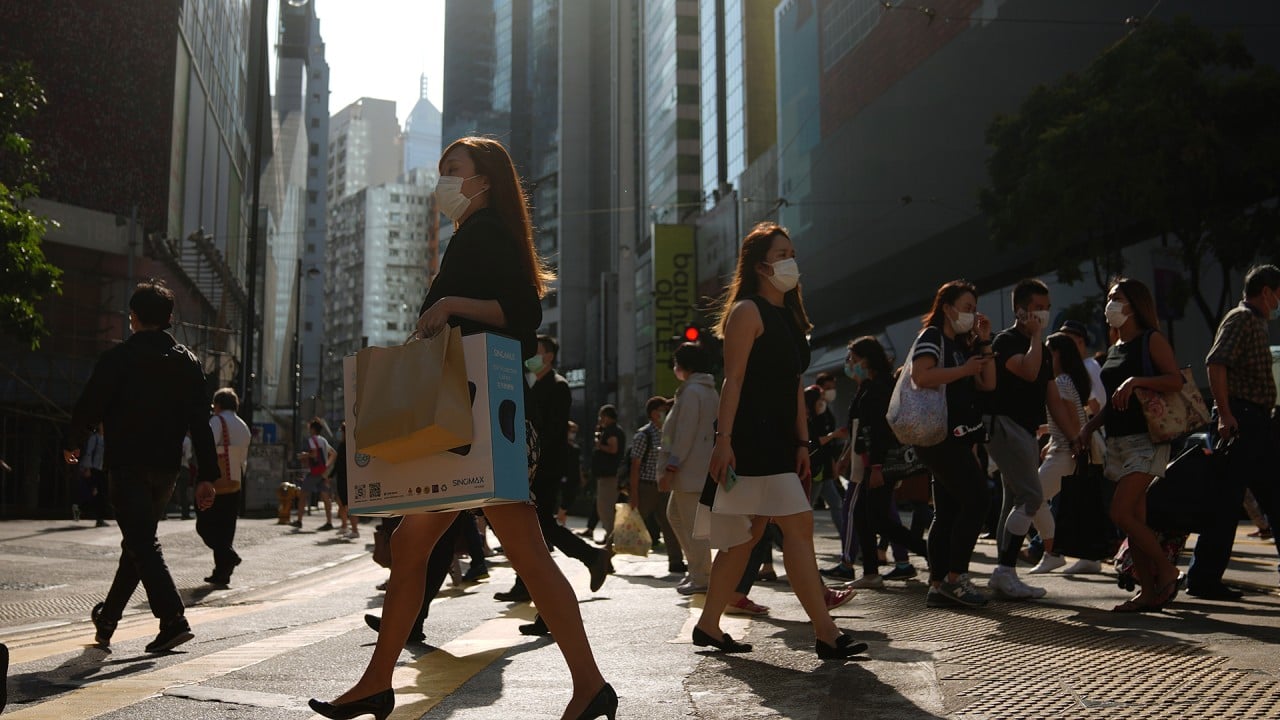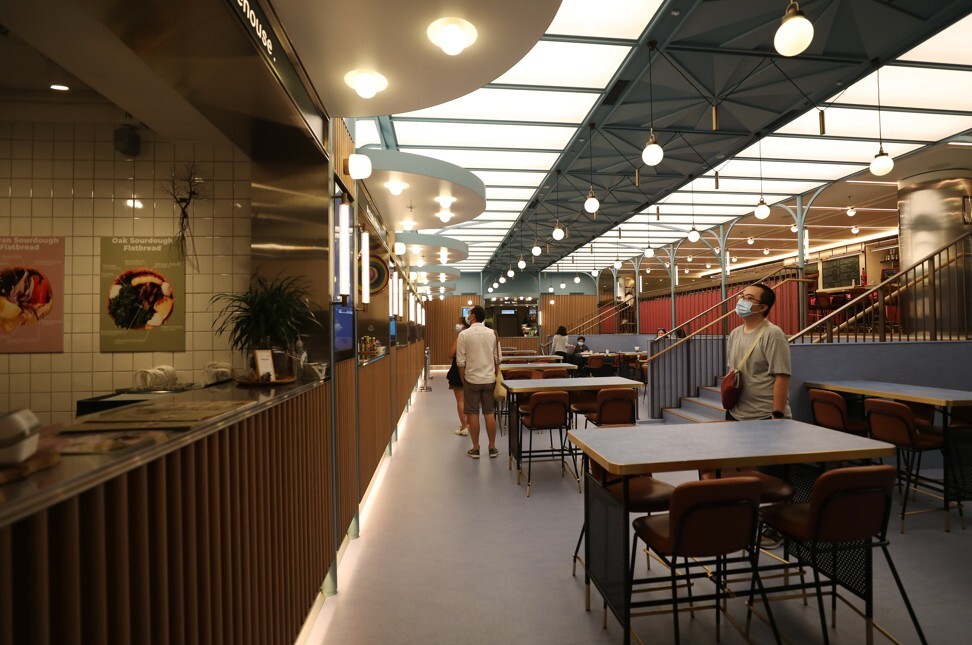
Hong Kong retail landlords turn vacant spaces into food courts to attract local consumers as tourist dollars dry up
- Landlords and property investors fill vacated space with food courts to focus on local consumers as tourist arrivals plunge
- Retail sales and restaurant receipts have fallen this year as Covid-19, travel bans, social distancing slam property owners and tenants
At the basement of Jardine House in Central, Hongkong Land in June turned a portion of the floor into BaseHall, a food hall comprising eight food and beverage (F&B) concepts and two bars. It was previously occupied by restaurant Grappa’s Cellar.
In North Point, Wor The Food made its soft opening last week as a food court in Wor Fu Mall, where eight stalls offering various food options have filled up the 8,000-sq ft (743 sq m) space where a Taiwanese beef noodle shop once operated.
“Demand for food courts typically comes from students, families, offices and smaller retailers in the neighbourhood,” said Johnny Yu, founder of BTS Catering, which operates Wor The Food. “Generally food courts target local customers, as they especially rely on repeat customers.”

BTS Catering, which invested between HK$1,000 (US$129) and HK$1,200 per sq ft in the project, expects to recoup its outlay in 24 to 30 months, Yu added.
Food courts are regarded as affordable dining venues, whose appeal typically increases during an economic slowdown as consumers tighten their spending belts. Food operators tend to be better tenants than general retailers, Yu added.
The changes to retail space makeup show how property owners are tweaking their business strategies as tourist dollars dropped to a trickle. Mainland Chinese, the lifeblood of local retail sales, have all but disappeared over the past 18 months as street protests and Covid-19 pandemic kept them at home.

04:10
Hong Kong retailers should create experiences for local shoppers to survive with ‘zero tourists’
With borders with mainland China almost shut and while quarantine requirements have turned travels into a chore, retail property owners have suffered from falling traffic and sliding rents. Food courts options have become a popular choice.
“I cannot say that Covid-19 has changed our commercial strategy. In many ways it probably just sped it up,” Paul Bennett, senior asset manager for commercial property at Hongkong Land, said during a recent webinar. BaseHall, he said, “is more of an evolution and looking to give tenants new and exciting F&B options.”
F&B operators generally pay lower rents to landlords because of their lower margins, compared to general retail shops. They are, however, deemed as “coveted tenants” given the current economic slump as they could draw bigger crowds.
“The malls are fighting to get more traffic,” said Pascal Martin, partner at OC&C Strategy Consultants. “Cinemas, bowling alleys, any kind of activity that requires people to come physically to the mall becomes a strategy [for the mall owners]. Definitely F&B, too.”

“F&B as a whole has been performing better than non-F&B retail space as a result of the competition of online sales [and] changes in consumption behaviour towards experience-based retail,” said Martin Wong, an associate director of research and consultancy for Greater China at Knight Frank. Food and beverage are also basic needs, regardless of economic conditions, he added.
Another advantage is the flexibility it allows between F&B stall operators and landlords. Instead of a standard three-year lease, a concessionaire lease with shorter lease period can be applied, according to Lawrence Wan, a senior director of retail advisory and transaction services at CBRE Hong Kong.
“The shorter lease period can provide flexibility for both and allow customers to enjoy new food regularly,” he said. “It could be a trend during an economic recession, [given] the high shop vacancy rate.”

